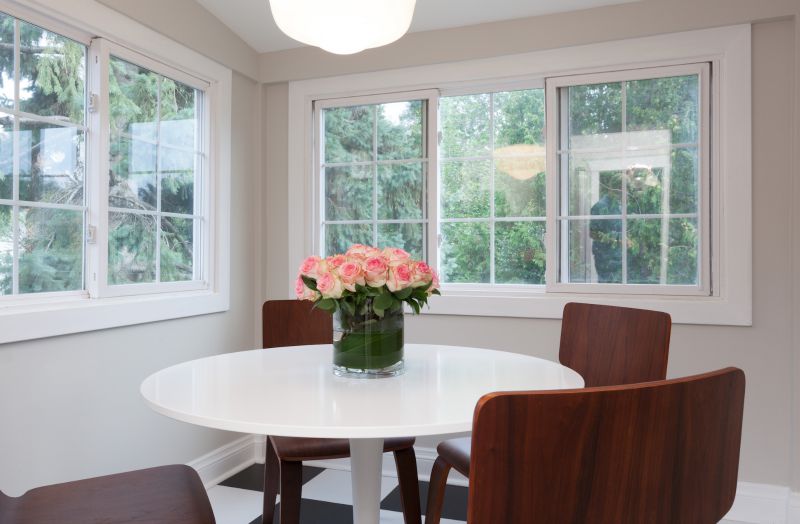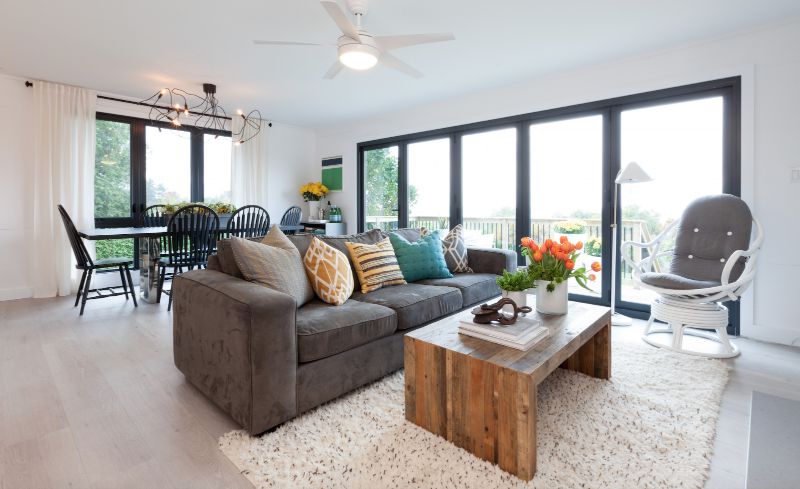Vinyl Windows and Energy Conservation
I’ve said it before and I’ll say it again: vinyl windows are affordable, timeless, energy efficient, and virtually maintenance free, and they’re my go-to choice on just about every renovation I do – including my own home. All four of these qualities are important, but today I want to focus on the topic of energy efficiency and energy conservation. Reducing one’s use of energy is beneficial to the environment and your wallet, so as far as I’m concerned it’s a win-win.

Energy Efficiency
One of the reasons vinyl windows are so popular, and one of the reasons I like them so much, is that they’re excellent thermal insulators. They help the warm air stay in during the winter, and they help the cool air stay in during the summer. When you live in a climate that fluctuates significantly with the seasons you need windows that can stand up to temperatures that get very hot, and very cold. Vinyl stands up brilliantly to both. The reason for this is that vinyl windows are made from PVC (polyvinyl chloride), which has a high R-value. R-value is a numerical way of assessing a material’s insulating properties. The higher the R-value, the more efficient the window.
Energy Conservation
Since vinyl windows are more energy efficient than other types (such as aluminum and wood), they also lead to energy conservation. When you have windows that don’t allow heat or air conditioning to escape, it means you’re likely to use less of heating and cooling mechanisms. Use of air conditioners, fans, and heaters can be greatly reduced. Not only does this result in less energy use (which is great for the environment) but it also saves you money. So even if you spend money replacing your current windows for new vinyl versions, the savings in all your heating and cooling costs could actually make up for the cost of the windows in just a few years. When you look at long term ROI, vinyl is a no-brainer.
Vinyl Window Facts
- New windows can add value to a property –usually 100% ROI or more provided that they’re good quality and properly installed. When you combine that with the savings due to energy conservation, vinyl windows are clearly a smart investment for your wallet.
- According to the CPIA, homeowners can achieve $125 – $340 annual savings on energy bills by replacing single pane windows with ENERGY STAR® vinyl windows.
- Typical windows last up to 20 years, but warranties can vary anywhere from 15-25 years. Vinyl windows are so durable that the vast majority of those installed over the past 25 years are still in use.
- Vinyl can be recycled and the process uses low amounts of energy consumption. Over 1 billion pounds of post-industrial vinyl is recycled in North America each year and 100% of manufacturing scrap is recyclable (*Info courtesy of the CPIA)

Vinyl products are strong, sustainable, affordable and beautiful, and in the case of windows they can also be great energy savers. So if you’re thinking about replacing your current windows for any reason, I recommend vinyl as a practical and cost-reducing option.
Photos courtesy of Skit Inc.

Comments